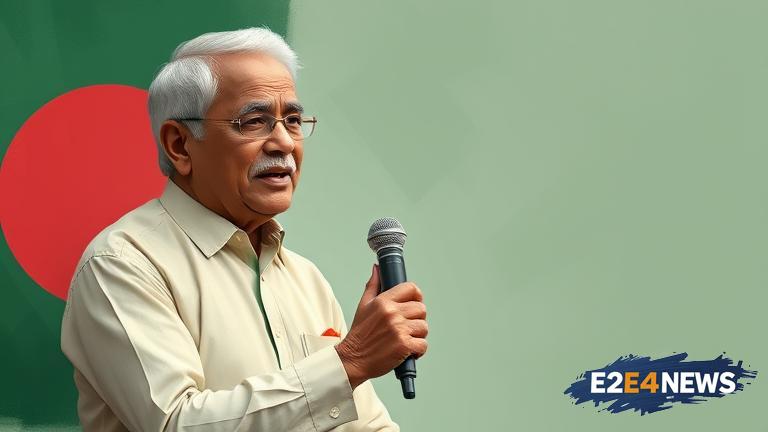The upcoming Bangladesh parliamentary election is set to take place in February, as announced by Nobel laureate Muhammad Yunus. This news has generated significant interest and discussion among the public, with many eagerly awaiting the outcome. The election is expected to be a crucial event in the country’s political calendar, with various parties and candidates vying for power. Muhammad Yunus, a renowned economist and social entrepreneur, has been a vocal advocate for social and economic development in Bangladesh. His announcement has been seen as a significant development, given his influence and reputation in the country. The election is likely to be a closely contested affair, with the ruling Awami League party facing challenges from opposition parties. The Bangladesh Nationalist Party (BNP) and the Jatiya Party are among the key opposition parties that are expected to contest the election. The election commission has been working to ensure a free and fair election, with measures such as voter registration and candidate scrutiny. The country’s electoral system has been a subject of debate, with some raising concerns about the potential for vote rigging and electoral irregularities. Despite these concerns, the election is expected to be a significant step forward for Bangladesh’s democratic process. The country has made significant progress in recent years, with economic growth and social development being key areas of focus. However, challenges such as poverty, corruption, and human rights abuses remain, and the election is seen as an opportunity for the country to address these issues. The international community has been watching the developments in Bangladesh with interest, with many countries and organizations offering support and assistance for the election. The United States, the European Union, and the United Nations are among the organizations that have expressed their support for a free and fair election. The election is also expected to have significant implications for the country’s relationships with its neighbors, including India and Myanmar. Bangladesh has been a key player in regional affairs, and the election is likely to shape the country’s foreign policy in the coming years. The country’s economic development is also expected to be a key issue in the election, with many candidates promising to create jobs and stimulate economic growth. The election is set to take place in a challenging environment, with the country facing significant economic and social challenges. Despite these challenges, the election is seen as a crucial step forward for Bangladesh’s democratic development, and many are hoping that it will mark a new era of peace and stability in the country. The election commission has announced that the election will be held in February, with the exact date to be confirmed in the coming weeks. The commission has also announced that it will be taking steps to ensure the security and integrity of the election, including the deployment of security personnel and the use of electronic voting machines. The election is expected to be a significant event in the country’s history, and many are eagerly awaiting the outcome. With the election just weeks away, the country is bracing itself for a intense and potentially divisive campaign season. The international community is watching the developments in Bangladesh with interest, and many are hoping that the election will mark a significant step forward for the country’s democratic development.
